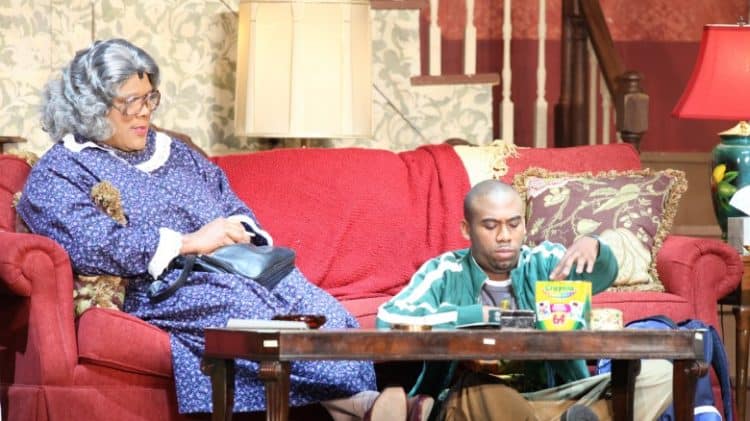
Since 2005, writer/director/actor Tyler Perry has been making mainstream movies for audiences and there’s no denying the impact that those films have made on Mr. Perry’s career. The filmmaker smartly catered to an audience that’s been long ignored by Hollywood, and in turn, Perry’s films often make bank at the box office. Thanks to his success, Perry is officially a billionaire is arguably the most financially successful black filmmaker to step into Hollywood. However, there’s no denying the dark cloud surrounding his movies, including his biggest franchise, Madea. Are Tyler Perry movies as bad as critics laud them to be? The simple answer is yes. However, there’s no denying the accomplishments that the filmmaker has made in Hollywood.
Perry has broken the barrier on black filmmakers actually succeeding in tinsel town. However, as smart as the 52-year-old is, that doesn’t necessarily mean that he’s a good filmmaker. Perry is indeed talented, but there are too many issues that continue to hold him back as a respectable writer/director. Let’s dive deeper into the problems most Tyler Perry movies have. Here’s the thing, the Madea character is fun in small doses. I understand that many have complained about the stereotypical black characters that Perry highlights in his film; however, that’s not one of his issues. The core problem is that Perry’s characters aren’t compelling. Despite being a title character, Madea never changes because she’s known as a pistol-packing loud mouth. This is why audiences love the Madea character thus Perry knows it’s a mistake to try and change her.
Perry often pens tragic female characters who get used and abused by men. Helen Carter (Diary of a Mad Black Woman) is being abused by her husband. Candy (Madea Goes To Jail) is also used and abused for her services. Granted, not every Tyler Perry movie features a woman being abused, but the point is that Perry tries to blend melodrama with slapstick comedy, and the jarring tonal shifts affect the movie altogether. How can I take the seriousness of Candy being raped when Madea is hilariously destroying property in the next scene? Madea’s antics often feel better suited in a different movie, but the problem remains that the pistol-packing grandmother is a one-dimensional character who couldn’t successfully carry a film on her own. The female characters tend to be written in an over-the-top melodramatic matter. So are the men. Perry throws everything and the kitchen sink to get you to feel sympathy for these protagonists or if you’re the villain of the movie, he goes cartoonishly over the top.
This doesn’t gel with the comedy that the Madea movies are presented to be, thus it’s hard to feel attached to these characters when audiences are being pulled one way (Madea’s over-the-top antics) and the other (Sympathetic figure going through hard times). Perry’s characters also lack true substance or nuance as if the filmmaker doesn’t believe that his audience will understand his message through subtlety. These issues notably drag down all of his films. There’s nothing wrong with Perry playing off the stereotypes of black people but he needs to understand how to craft better characters. Too many times his antagonists are mustache-twirling villains. For example, the problem with Mehcad Brooks’ Shannon from A Fall from Grace is that he doesn’t hide any of his crimes. He’s stealing from his wife and has no issues letting her know once they get married. The overall movie dives into nonsense as the film goes on, with the end result actually showcasing that Shannon and his mother have been running an abuse-the-elderly scheme.
At its core, the character motivations create too many logistical plot holes. Having a cartoonish villain can actually work in his Madea films, which are supposed to be comedies; however, when you shuffle the seriousness of an abuser into the mix, then the messages become muddled. Another issue stems from the spiritual message that his films usually portray. Let me be clear, there’s nothing wrong with a movie having a spiritual message. However, how can you have a spiritual message about love or forgiveness when jokes about abuse, stripping, or violence are tossed around so casually. Or, in the case of Tyler Perry’s Temptation, Jurnee Smollett-Bell’s Judith, who was punished for her infidelity by ending up with HIV. As previously stated, Tyler Perry does have talent; however, his writing tends to be very problematic, creating unbelievable characters who lack any true sense of value.Mehcad BrooksTyler Perry
 Follow Us
Follow Us



